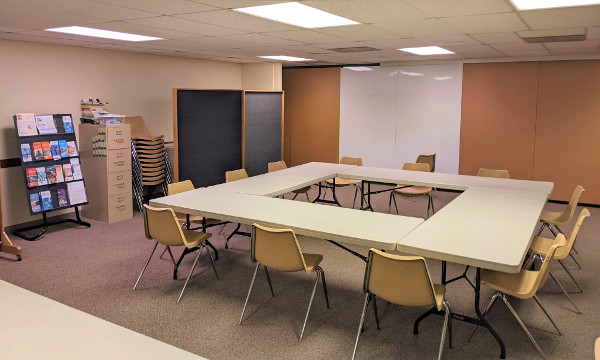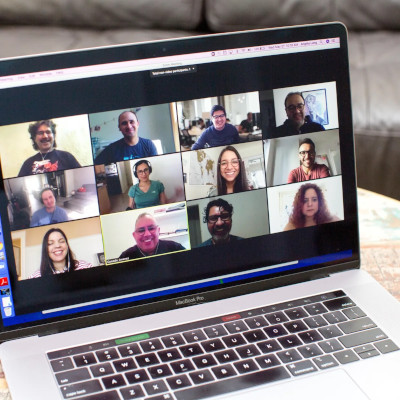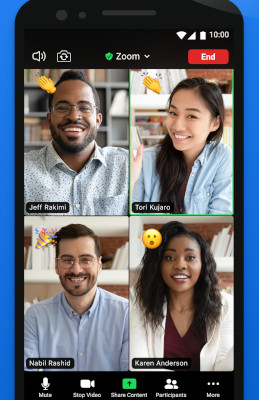Frequently Asked Questions
Q: What can I expect at my first meeting?
A: After gathering (either in-person or online) a facilitator starts things off with a Welcome Statement that describes the structure of our meetings. Then we review our Group Guidelines before we have each participant “check in” by introducing themselves by their first name and answering an ice-breaker question. After that we have an open discussion about mood disorders by focusing on our personal experiences. We share stories of our struggles and successes while supporting each other in a non-judgmental space.


Q: Is the support group part of the church?
A: No. While the people at Riverwalk Church of Christ are kind enough to provide us with a meeting space our group is not affiliated with their church. We welcome people of all faiths (or none at all for that matter).
Q: How many people typically attend each meeting?
A: It depends! For the last few years we’ve averaged about 6-9 members per meeting although we’ve had as few as 2 and as many as 14. This is true for both our in-person and online groups. We do our best to share the time fairly regardless of our number of participants.
Q: When is the next meeting?
A: This next Thursday! Generally, our group meets each Thursday evening from 6:30 to 8:00 pm. Where we meet is what might change from week to week. You can always find our up-to-date meeting information on this site. The bottom of our Home Page has a section detailing “Our Next Meeting”. You can also reference our Calendar. If you have any questions you can also ask directly via our Contact page.
Q: Do you have any tips for having a good Zoom experience?
A: Sure! Firstly, while we don’t require participants to have their video on during the entire meeting we strongly encourage people to use video as much as possible. We find that it really helps people both provide and receive support when they have that extra layer of communication. Secondly, using a pair of headphones or a headset can greatly improve the audio quality for both you and the rest of the group. Lastly, having some familiarity with Zoom before your first meeting can be helpful. If you’re able to, download the dedicated “Zoom Meetings” app on the device you intend to use. You’ll want to know how to turn off both your audio and video feed when needed. It’s also helpful to know how to “Raise Your Hand” in a meeting if you’d like to be acknowledged without interrupting the current speaker. You can perform a simple test call with Zoom by following the instructions HERE. Our lead facilitator is also always happy to walk new people through the process if you’d like to contact them ahead of your first online meeting.


Q: Is there any cost to attend a meeting?
A: Nope! Meetings are free and open to all.
Q: How can I help out?
A: Volunteer! Our group is supported by our parent chapter DBSA Overland Park. So while donations to them are always welcome what we could always use are more volunteers. You don’t have to have elaborate training to start facilitating a meeting yourself. We can also use help with sending out meeting reminders, promoting the group, and helping set up and tear down our physical meeting space. If you’d like to be more involved please contact us and we’ll be happy to help you find something you can do within your comfort zone!
Less Frequently Asked Questions (Policies and General Info)
Q: What is your current COVID-19 safety policy?
A: Ultimately, there is no way to fully guarantee the safety of participants who join us for an in-person meeting. With that said, we have done our best to provide as safe an environment we can for the health of our members both physically and emotionally. We do not currently mandate or confirm vaccination status although we readily recommend vaccination as the best way to prevent serious illness and hospitalization. We have adjusted our seating setup at meetings to allow as much space between participants as possible while still being easily heard. We are also following all national, state and local ordinances referring to masking and we share updated recommendations as they are made available. Contact tracing has not been necessary thus far but all participants who share contact information with the in-person facilitator will be notified in the event of a possible exposure at a meeting. If you’d like any additional information or clarifications please contact us.
Q: Can I bring my kid(s) to the meeting?
A: Generally, no. Our support group is intended for adults (aged 18 and older) primarily because topics that might get discussed could be inappropriate for younger people. Please visit our Resources page for information on other options that might be available.
Q: Are any topics inappropriate to discuss in the group?
A: Yes. We generally try to restrict speech as little as possible during our meetings. That said, certain topics tend to be less productive to group discussions so we generally try to discourage them ahead of time and move on from them when they come up. Examples of this type of topic include: politics, religion and talking about groups of people. It’s important to note that while the topic of suicide in general can be an appropriate one to discuss, we discourage participants from sharing specific details of suicide attempts or traumatic experiences in general. We can’t totally avoid controversial or potentially triggering topics but we try to provide a framework that encourages productive discussion and discourages anything that makes other members feel unsafe or unwelcome.
Q: What is your policy on confidentiality?
A: Our motto surrounding this issue is, “What’s said here stays here”. We ask all group participants to agree to this principle before every meeting. Certain extreme circumstances might force us to violate this policy including explicit threats of violence or harassment. Group members will be warned if their statements have to be reported. We also ask that anyone who works in the role of “mandated reporter” disclose that before joining us for a meeting in that capacity.
Last updated July 28th, 2022
